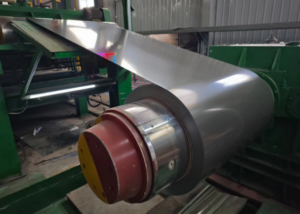Stainless steel, as a significant member of modern metal materials, has become a research hotspot in the field of metallurgy due to its unique properties and extensive applications. This article will delve into the properties of stainless steel and its applications in detail.

What are the properties of stainless steel and its applications?
I. Basic Properties of Stainless Steel
Stainless steel, as its name suggests, is a type of steel that possesses stainless properties. Its main characteristics are reflected in the following aspects:
Corrosion Resistance: The corrosion resistance of stainless steel is one of its most prominent features. By adding elements such as chromium and nickel, stainless steel is able to maintain good corrosion resistance in weak corrosive media such as air, water, and steam, as well as in strong corrosive media such as acids, alkalis, and salts.
Heat Resistance: Stainless steel maintains good mechanical properties and chemical stability at high temperatures. This allows it to have a wide range of applications in high-temperature environments.
Aesthetic Appeal: Stainless steel has a near-mirror finish and a hard, cold texture, making it a relatively avant-garde decorative material. Its surface is not easily oxidized or discolored, allowing it to maintain a bright appearance for a long time.
Processability: Stainless steel has good processing properties, including weldability and polishability. This enables stainless steel to be easily processed and formed into various shapes and sizes.
II. Classification of Stainless Steel
Based on the microstructural state and chemical composition, stainless steel can be classified into the following categories:
Martensitic Stainless Steel: It has high strength and hardness but relatively poor corrosion resistance. It is commonly used for making cutting tools, springs, and other applications.
Ferritic Stainless Steel: It possesses good corrosion resistance and ductility but has lower strength and hardness. It is widely used in chemical, petroleum, construction, and other industries.
Austenitic Stainless Steel: It is known for its excellent corrosion resistance, heat resistance, and workability. It is one of the most widely used types of stainless steel, with grades such as 304 and 316.
Duplex Stainless Steel: It combines the advantages of ferritic and austenitic stainless steel, offering high strength and corrosion resistance. It is suitable for specific environments and working conditions.
III. Manufacturing Process of Stainless Steel
The manufacturing process of stainless steel mainly includes smelting, rolling, heat treatment, and other steps. During the smelting process, the composition of the raw materials and smelting conditions are controlled to obtain stainless steel liquid that meets the requirements. Then, through rolling, heat treatment, and other technological processes, the stainless steel liquid is processed into various specifications and shapes of plates, pipes, bars, and other products.
IV. Application Fields of Stainless Steel
With its unique properties, stainless steel is widely used in various fields:
Construction and Decoration: Stainless steel is extensively employed in construction and interior decoration, such as stainless steel doors, windows, railings, suspension systems, and kitchen equipment. Its aesthetic appeal and corrosion resistance make it an ideal material for modern buildings.
Medical Equipment: Due to its good biocompatibility and corrosion resistance, stainless steel is commonly used in the manufacture of medical devices, including surgical instruments, dental instruments, and surgical hooks.
Food Processing and Pharmaceutical Industries: Stainless steel also finds extensive application in the food processing and pharmaceutical industries, such as in food storage tanks, food processing equipment, tableware, and pharmaceutical manufacturing equipment. Its corrosion resistance and ease of cleaning ensure food hygiene and safety.
Chemical and Energy Industries: In the chemical and energy industries, stainless steel is widely used to manufacture pipes, tanks, reactors, and oil well casings. Its high temperature resistance and corrosion resistance enable it to adapt to complex working environments.
Transportation: Stainless steel plays a significant role in the manufacturing of vehicles such as cars, ships, and aircraft. It is found in components like stainless steel exhaust pipes, car body parts, ship hulls and decks, and aircraft engine parts.
Other Fields: Additionally, stainless steel has applications in electronics, environmental engineering, water treatment, and other industries. It is used in electronic product housings, environmental equipment, and water treatment equipment.
Conclusion
Thank you for reading our article and we hope it can help you to have a better understanding of the properties of stainless steel and its applications. If you are looking for stainless steel products, we would advise you to visit Sino Stainless Steel.
As a leading supplier of stainless steel products from Shanghai China, Sino Stainless Steel offers customers high-quality stainless steel coils, stainless steel sheets, stainless steel tubes, and stainless steel bars at a very competitive price.
 :+86-13012867759
:+86-13012867759  :export86@sino-stainless-steel.com
:export86@sino-stainless-steel.com
Thanks for sharing. I read many of your blog posts, cool, your blog is very good.
Your point of view caught my eye and was very interesting. Thanks. I have a question for you.
Your point of view caught my eye and was very interesting. Thanks. I have a question for you.
Can you be more specific about the content of your article? After reading it, I still have some doubts. Hope you can help me.
70918248
Thank you for your sharing. I am worried that I lack creative ideas. It is your article that makes me full of hope. Thank you. But, I have a question, can you help me?
Your point of view caught my eye and was very interesting. Thanks. I have a question for you.